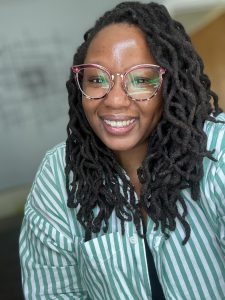Kate C. Farrar brings over 15 years of nonprofit management and women’s issue expertise to her role as Executive Director of the Connecticut Women’s Education and Legal Fund (CWEALF). CWEALF is a statewide non-profit organization dedicated to empowering women, girls, and their families to achieve equal opportunities in their personal and professional lives.
She came to CWEALF as the interim Executive Director and was the founder and principal consultant of K.C. Farrar Consulting, LLC serving non-profit organizations in strategic planning, program development and facilitation, and fundraising.
Prior to her consulting work, Kate was the Vice President of the American Association of University Women (AAUW)’s Campus Leadership Programs in Washington, D.C. where she guided the strategy and management of the organization’s nationwide college women’s leadership programs, college/university relationships, and science, technology, engineering, and math programs for girls. In D.C. Kate also served as the associate director of National Programs and Policy at Wider Opportunities for Women where she led the Family Economic Self-Sufficiency Project (FESS), a nationwide project focused on policies and programs to move low-income families toward economic independence.
To begin her career, Kate lobbied the Connecticut state legislature on behalf of nonprofit organizations with Judith Blei Government Relations and served as a field organizer in Wisconsin for the 2004 presidential campaign. Her interest in politics and advocacy began from an internship with Connecticut Secretary of State Denise Merrill when Merrill was a State Representative serving Storrs.
A lifelong supporter and advocate of women’s representation in politics, Kate is President of the Women Under Forty Political Action Committee, the only nonpartisan PAC in the country that supports young women running for office. She is a graduate of the Women’s Campaign School at Yale, was chosen as the sole U.S. representative at the 2014 Organization of Security and Cooperation in Europe (OSCE) Youth Political Participation Forum, and named a 2014 Top 50 Political Influencer by Campaigns and Elections magazine.
Kate is a Career Advisor for the UConn College of Arts and Liberal Sciences, a member of Representative Esty’s STEM Advisory Board and on the annual event committee for the Aurora Foundation.
Kate earned a bachelor’s degree in political science from the University of Connecticut and a master’s in public administration from the Maxwell School at Syracuse University. While an undergraduate student at UConn, Kate held leadership roles in Kappa Alpha Theta, served as a Career Resource Assistant at Career Services and was a student teacher for First Year Experience classes. She lives in West Hartford, CT with her husband Chan and their corgi Lizzie.
